In the series hospitality influencers, we provide insights into the future of hospitality through interviews with inspiring individuals actively shaping the industry. These thought leaders share their stories and provide industry perspectives, challenges, opportunities, and innovations. Join us in exploring the future of hospitality.
In this interview, we speak with Juanjo Rodriguez, the co-founder of the Hotels Network and an expert in facilitating direct bookings for hotels. The Hotels Network offers several solutions designed to help hotels attract more direct business and become less reliant on third-party platforms, like online travel agencies (OTAs).
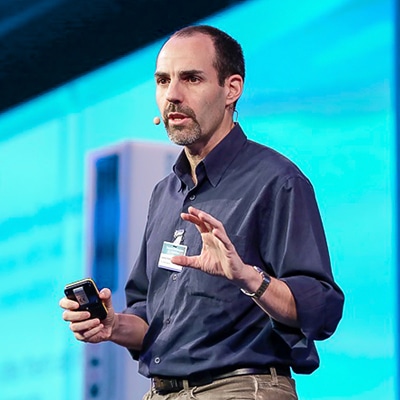
Can you tell us a bit about yourself?
I’m originally from Spain, from a small town called Zamora near the Portuguese border. I moved to Barcelona to pursue my college education and go to business school, and then I ended up staying here. I initially worked in consulting for telecom companies, but quickly transitioned to working on my own projects.
I started my first company over 20 years ago — a startup in that initial phase of the internet. I started a marketing agency catering to online and offline projects three years later.
My journey with the marketing agency spanned more than a decade, and although it became well-renowned, I was eager to look for new challenges, and projects where technology played a more significant role and had the potential to make a much larger impact.
What was your first job in the hospitality industry?
After engaging in a series of experiments and careful deliberation, I landed on venturing into the world of hospitality. Before founding The Hotels Network, my first project within the industry was the creation of a home exchange network. This venture proved pivotal during a period that was characterized by the flourishing sharing economy and a surge in travelers seeking alternative places to stay.
This is when I expanded my knowledge about the hospitality industry, and it was during this immersive learning experience, I recognized the vast potential and untapped opportunities within the hotel industry. It became clear that working with hotels as a greater space was where I wanted to continue my journey professionally.
What triggered you to start your company?
Many entrepreneurs start by focusing on a business-to-customer (B2C) issue, tackling problems faced by end users, and working on providing solutions. However, when we deliberately decided to adopt a business-to-business (B2B) approach and thoroughly analyzed the challenges encountered by hotels, it became clear that there was a remarkable opportunity to work with hotel brands.
I could be considered somewhat of an outsider in the hospitality industry because I had already founded several companies in different fields by the time I started working in this space.
The driving force behind founding The Hotels Network was the realization that the B2C aspect of the industry, encompassing booking and travel, was already pretty well-served by OTAs. However, we recognized a pressing need within the hotels – specifically in enhancing back-of-house operations and overall efficiency – and improving front-of-house communication with their end users: the travelers.
This part of the industry is where we saw the immense potential for innovation and improvement. Instead of hoteliers having to invest heavily in marketing and technology, we saw an opportunity to do that on their behalf.
We could provide them with a comprehensive marketing and technology service, at a fraction of the cost they would incur if they attempted to develop a similar solution internally. This approach allows hoteliers to focus on their core operations, while benefiting from our expertise and cost-effective services.
What is the story behind your company?
The company initially started with a core team of three of us, who had already collaborated on a previous project, so we had the advantage of prior experience working together as a team.
The team was split between the United States and Spain in the early stages. At that time, I was living in San Francisco, while my co-founder was based in Barcelona. With a small, scrappy group of five people, we embraced a resilient mindset and spirit that remains integral to our company culture today, even as our team has grown significantly since the early days. As we expanded, Barcelona naturally evolved into our official headquarters.
While it remains our base of operations to this day, our team of around 130 people is now distributed across the globe, with half of them based in Barcelona and the other half working from where their market is located.
We have a very local approach to business and our clients, so our team members have multinational backgrounds and can live anywhere in the world. Currently, The Hotel Network has a presence in around 20 cities worldwide, and our team is of over 35 different nationalities.
What does your company solve?
At The Hotels Network, our mission is clear: to help hotels drive more direct business. We achieve this by enabling hoteliers to serve the end user directly, reducing the reliance on third-party intermediaries, such as OTAs or tour operators. The need for direct business is obvious to every hotelier.
We offer a range of services designed to help hoteliers attract visitors to their website and personalize the user experience on their direct booking channel, ultimately driving higher conversion rates and revenue.
We also provide robust analytics and benchmarking, to help hoteliers gain a comprehensive understanding of everything that is affecting their online e-commerce channels. By comparing direct channel performance with other hotels in our network, they can easily identify the areas they need to improve.
What challenges did you face while developing and launching your technology? How did you overcome them?
As soon as we began working with hoteliers, we quickly discovered that our clients really liked our product and witnessed tangible results, specifically, enhancing their direct channel performance.
However, we encountered a unique challenge — since we created a new category in hotel tech, there wasn’t an established name for what we do. We settled on the term “growth”, because our platform enables client hotels to grow in their direct channel. It doesn’t have a conventional name, like a PMS or a booking engine. However, it speaks volumes about how we built something completely new and different.
The challenge was that we knew clients had the need, but they could not express this need precisely. This meant that the initial phase of our journey required considerable effort in explaining who we are and what we’re doing and convincing people to try out our platform for themselves.
The good news is, we’ve been very successful with this approach. We know that if people try our services and products, they experience positive results. Our primary focus remains on encouraging hoteliers to try out our platform.
It may appear counterintuitive, but our primary technological challenge isn’t so much with the initial building of the technology, but rather with scaling our technology to cater to our clients worldwide. Our biggest hurdle revolves around finding effective solutions to provide our services to hotels on a global scale.
While we already cover more than 100 countries, we are merely scratching the surface, with only about 5% of hotels worldwide using our technology. This leaves us with the exciting task of catching up with the other 95%. Our ultimate goal is ambitious, yet invigorating: to eventually work with every single hotel in the world.
Who were the people that have been the most helpful in getting you to where you are today? How did they impact your life and your success?
As outsiders venturing into the hospitality industry, our journey has been a profound learning experience, and we have had the pleasure of connecting with numerous individuals who have been instrumental in our success.
Our interactions with hoteliers have shaped our trajectory and deepened our understanding of their needs and challenges. Furthermore, we have forged invaluable relationships with like-minded companies in our domain. These partnerships have been pivotal in our growth, as we join forces with service providers catering to a similar client base without direct competition.
We dedicate substantial time and resources to joint initiatives and reciprocal promotion. By nurturing these connections, we create an ecosystem that fosters innovation and mutual benefit within our industry; opening the door for hoteliers to utilize a comprehensive suite of integrated technology solutions seamlessly.
How do you balance the traditional touchpoints of hospitality with technology?
It is important to distinguish between the hospitality experience that hoteliers provide to their guests and the internal operations that take place behind the scenes. A key aspect of our industry is that technology will never be able to fully replace the act of physically traveling to different destinations and staying at different properties. If I want to go to Paris, I can’t be teleported there and will not visit it virtually. I want to be physically present in the real Paris.
The hospitality industry remains grounded and isolated from the imminent threats of machine learning, AI, and robots because it is inherently rooted in human interaction’s tangible and personal aspects. If anything, people often yearn for a temporary escape from technology while traveling. However, to make that travel experience seamless, there’s a lot that you can do with technology.
We always split this two ways. On the front-of-house side — which includes the booking process, arriving at the hotel, checking in, activity planning, and any other communication — technology can simplify these interactions.
There is zero negative impact for the end user for back-of-house operations — such as everything that has to do with the PMS, channel manager, or other internal processes. On the contrary, it makes the experience seamless. That’s why I believe there is no conflict between the traveler’s on-site experience at the property and the behind-the-scenes operations required to make that trip as effortless as possible.
How do you stay up-to-date with the latest trends and advancements in the hospitality industry and technology? How do you incorporate them into your product roadmap?
I am an avid reader, so I subscribe to daily and weekly newsletters about all things in travel to keep up with the latest industry developments and trends. I typically skim them and save it to read later if there is something interesting. But my curiosity extends beyond the travel space alone, because I think there’s a lot to be gained from combining different input sources.
That’s why I also like to read and educate myself about anything technology-related, including following the progress of a wide range of tech companies worldwide.
In fact, many of the ideas we come up with result from this interdisciplinary approach. We draw inspiration from things happening elsewhere, in a different space, such as e-commerce or fintech, and then look for ways to translate those concepts into the context of the travel and hospitality industry.
How will technology change the hospitality industry over the next five to ten years? Where do you see your company fitting into that future?
We tend to overestimate what happens in the short term and underestimate the long term. I think that hospitality is already evolving rapidly today. Very traditional ways of doing things and very modern ways of doing things can exist simultaneously. The industry is so diverse and fragmented that you can have two hotels right next door to each other, yet one is 10 years ahead and the other stuck 10 years in the past.
Looking ahead, I think that the trends we are seeing today are the ones that are likely to persist in the future. Hotels are increasingly adopting technology to streamline their operations. Innovative and better ways of executing these processes are continuously emerging. At The Hotel Network, we use generative AI in certain areas, but mostly to meet short-term needs in terms of content and inspiration.
I don’t believe there will be anything that completely disrupts the industry, because the essence of travel itself cannot be replaced by technology, as that’s not what travelers want.
Travel proved extremely resilient after COVID, a testament to its enduring appeal. I believe resilience is a good basis to invest in something long-term because you know it will pay off.
More Tips to Grow Your Business
Revfine.com is the leading knowledge platform for the hospitality and travel industry. Professionals use our insights, strategies, and actionable tips to get inspired, optimize revenue, innovate processes, and improve customer experience.Explore expert advice on management, marketing, revenue management, operations, software, and technology in our dedicated Hotel, Hospitality, and Travel & Tourism categories.

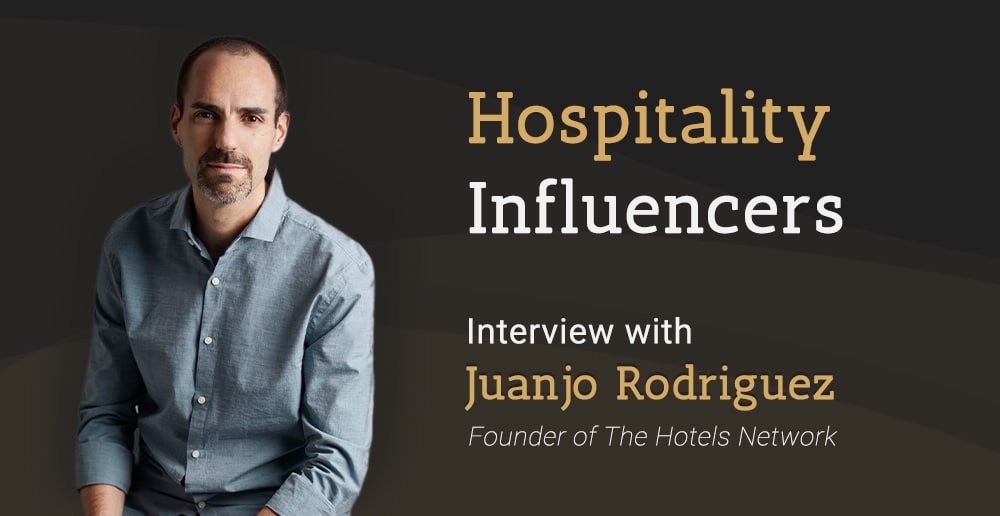
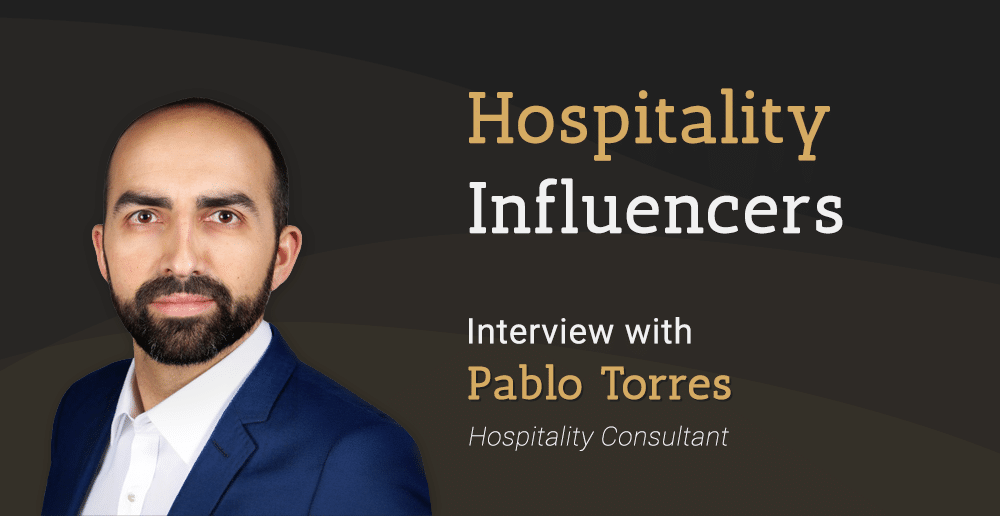
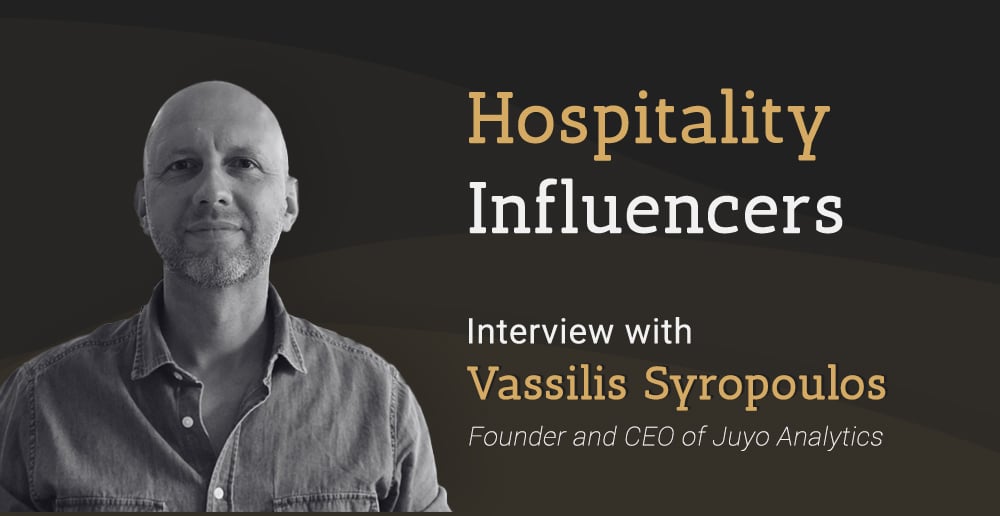
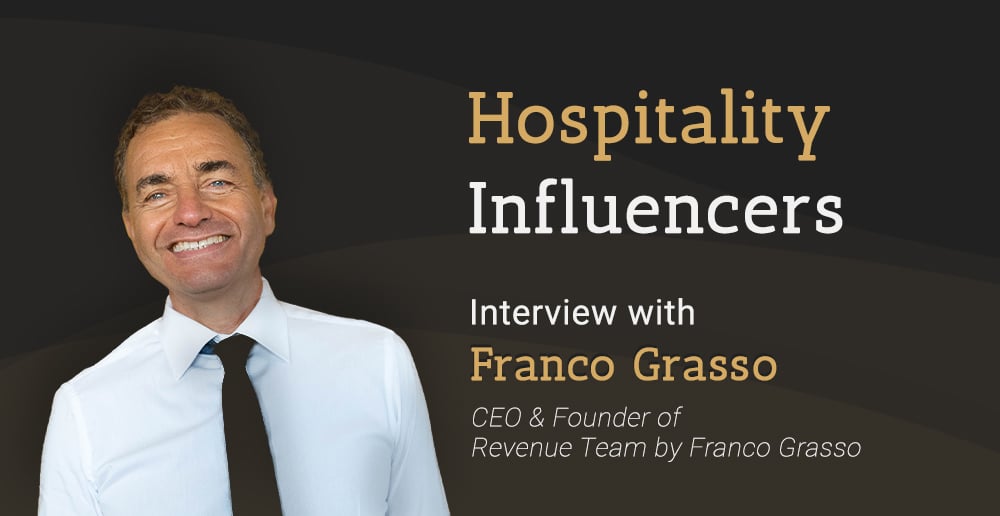
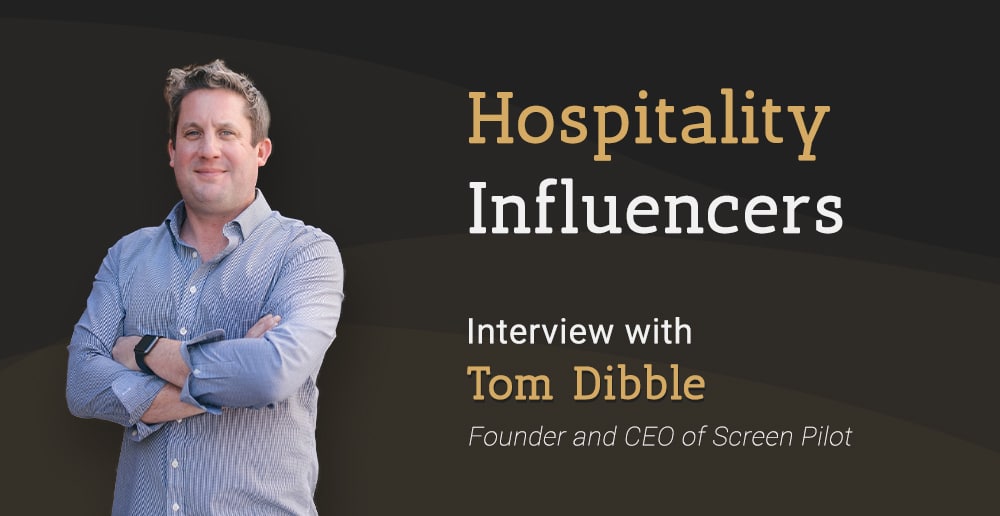
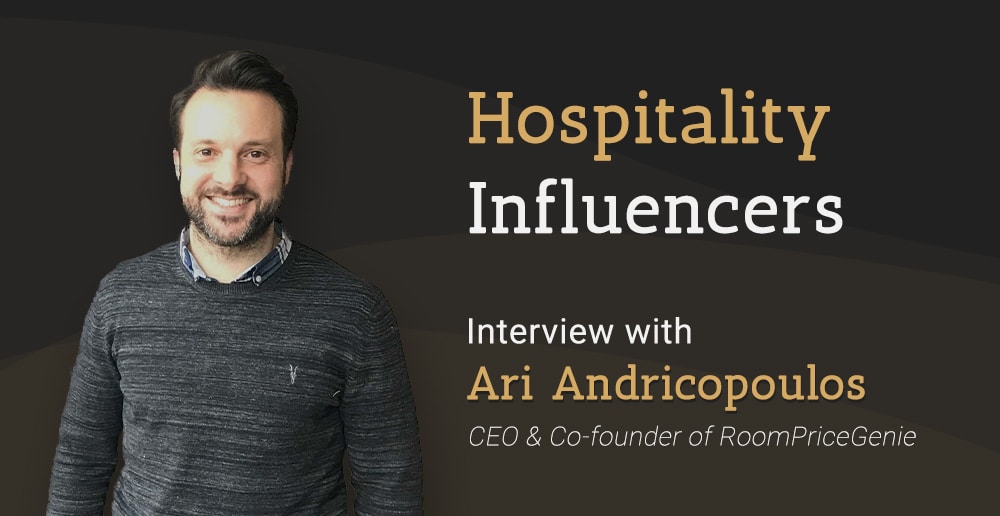
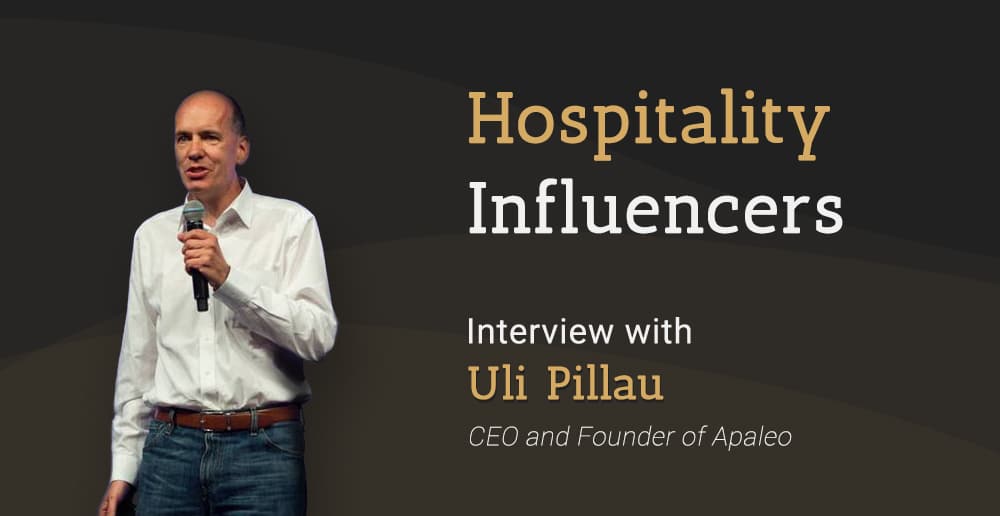
Leave A Comment